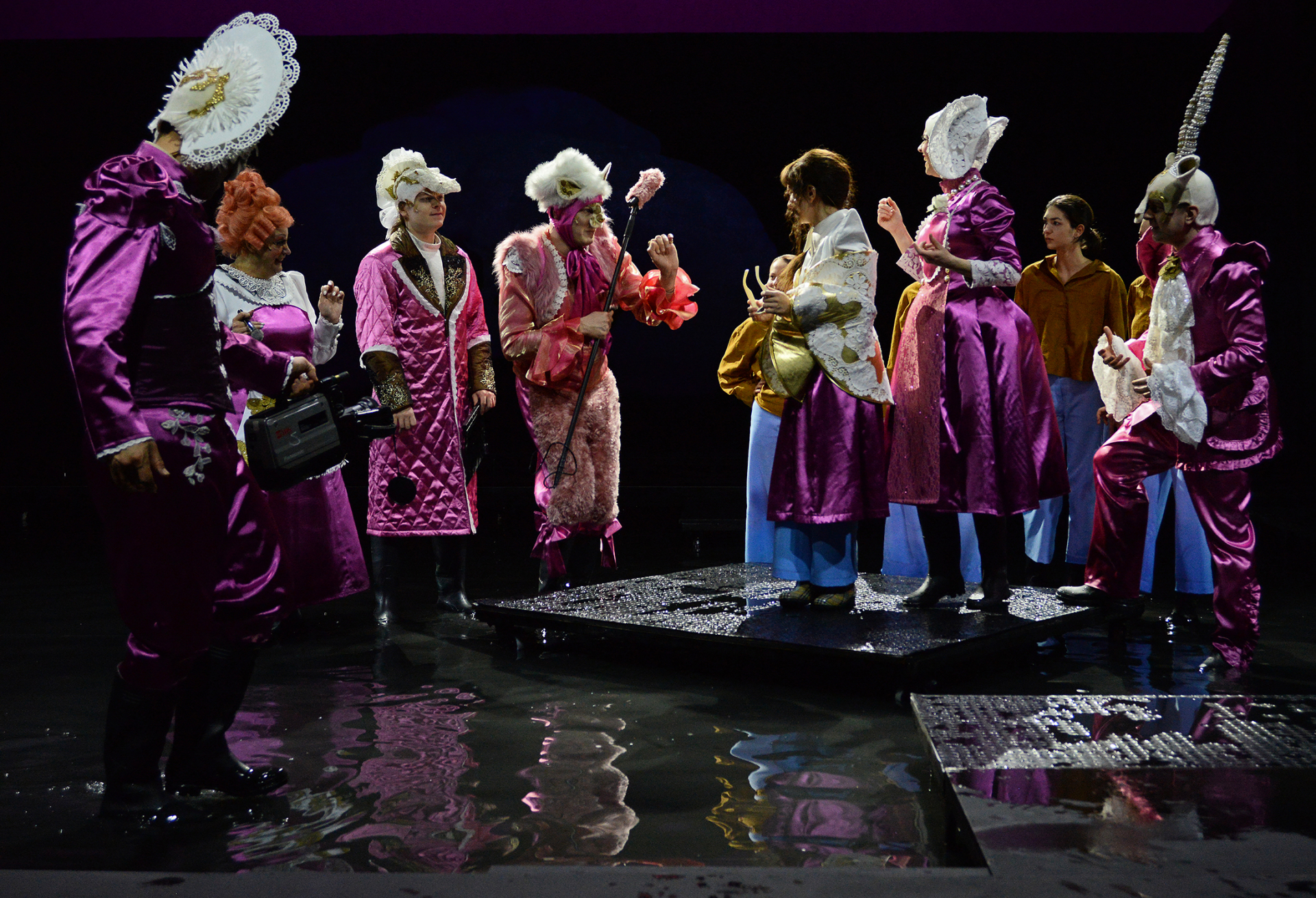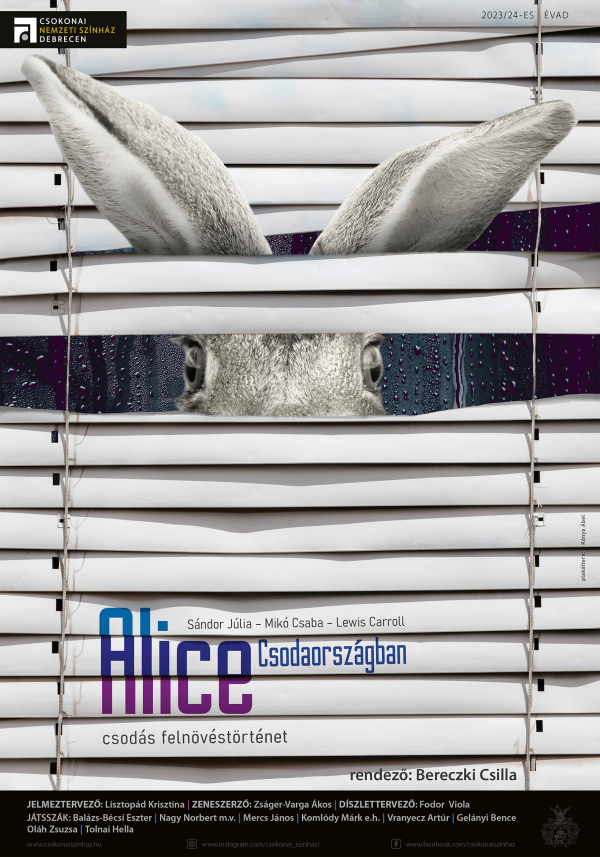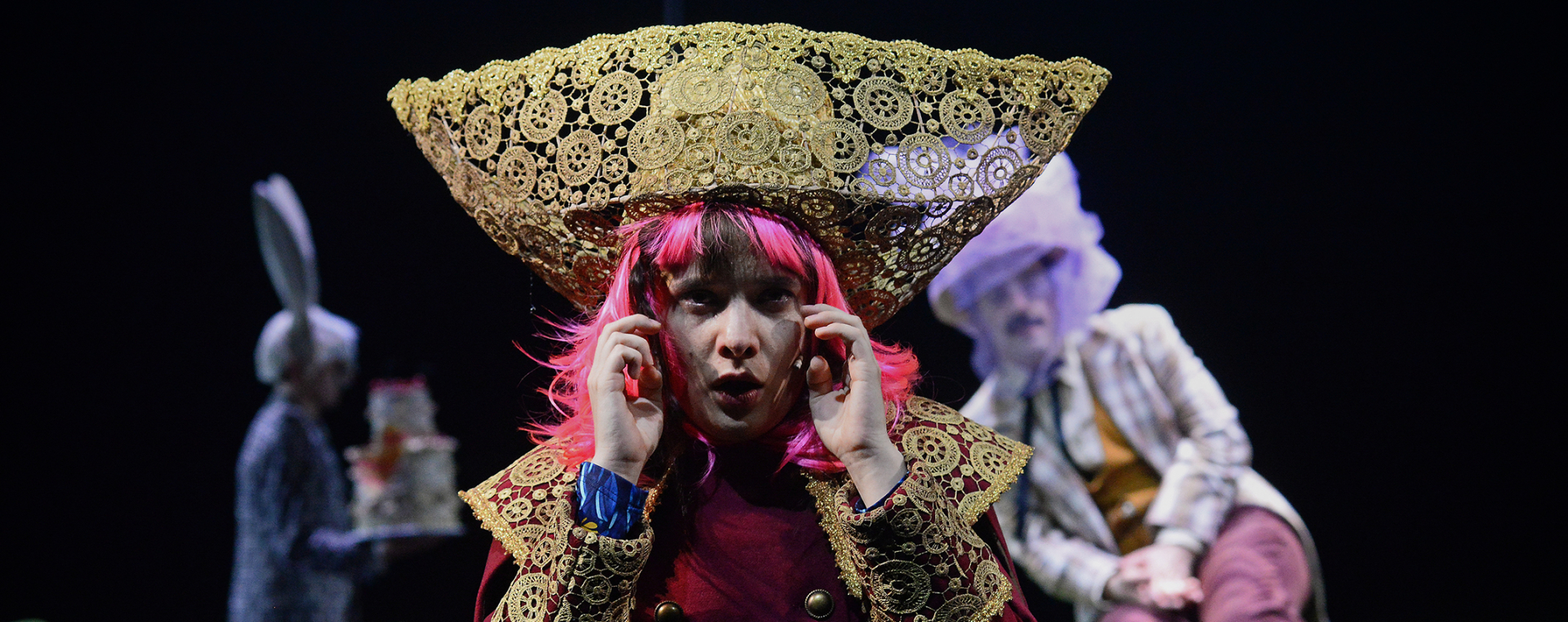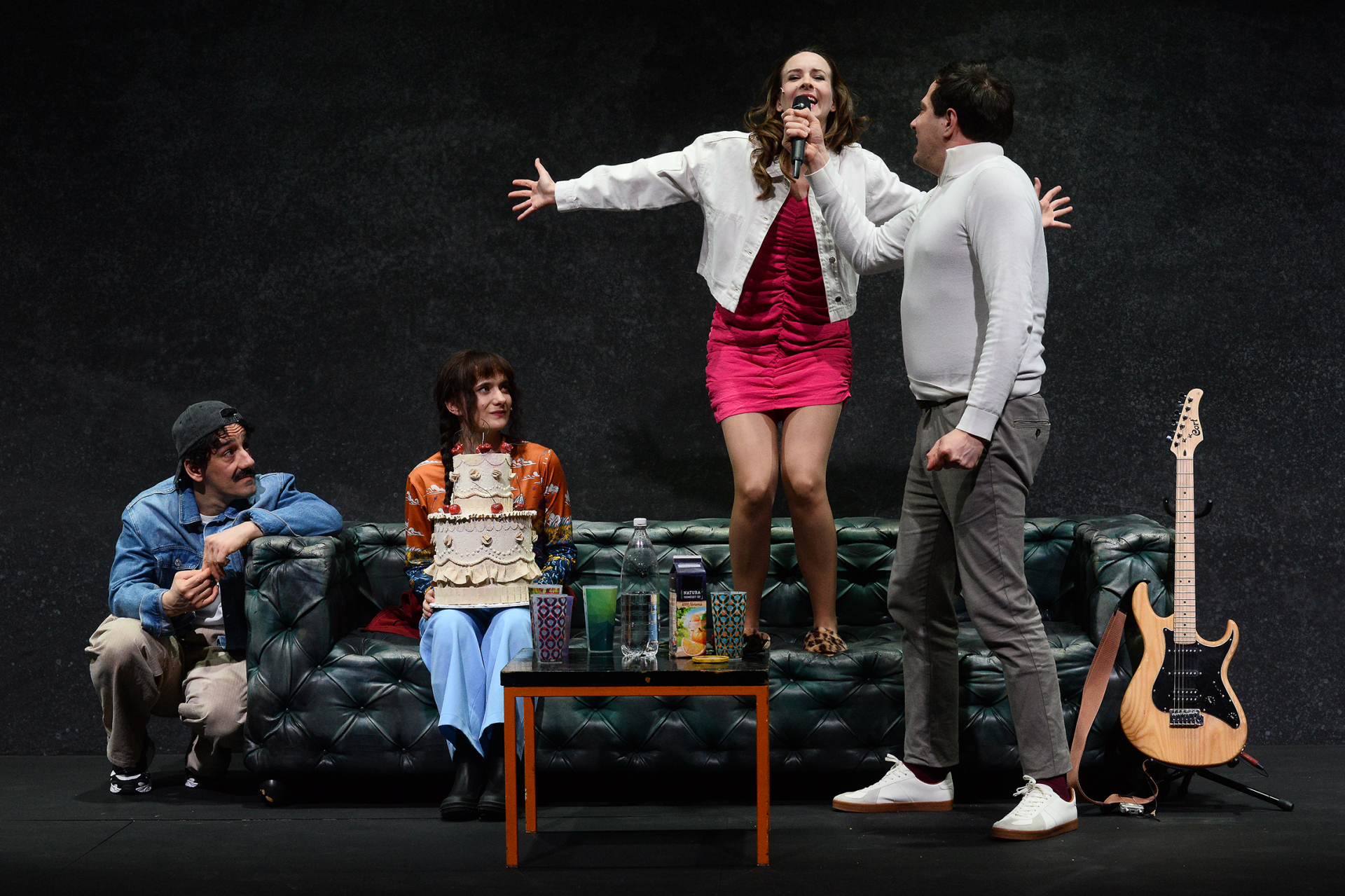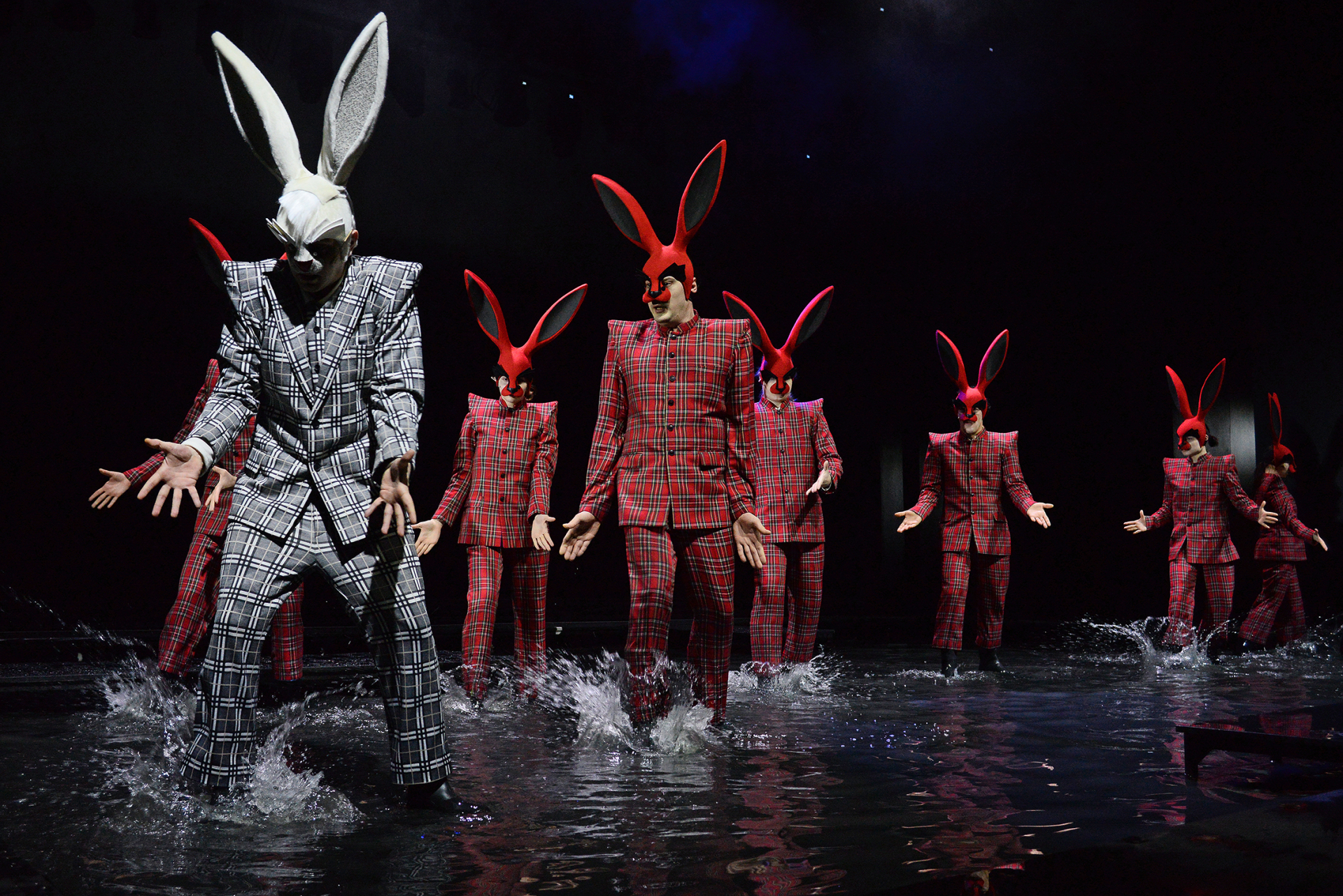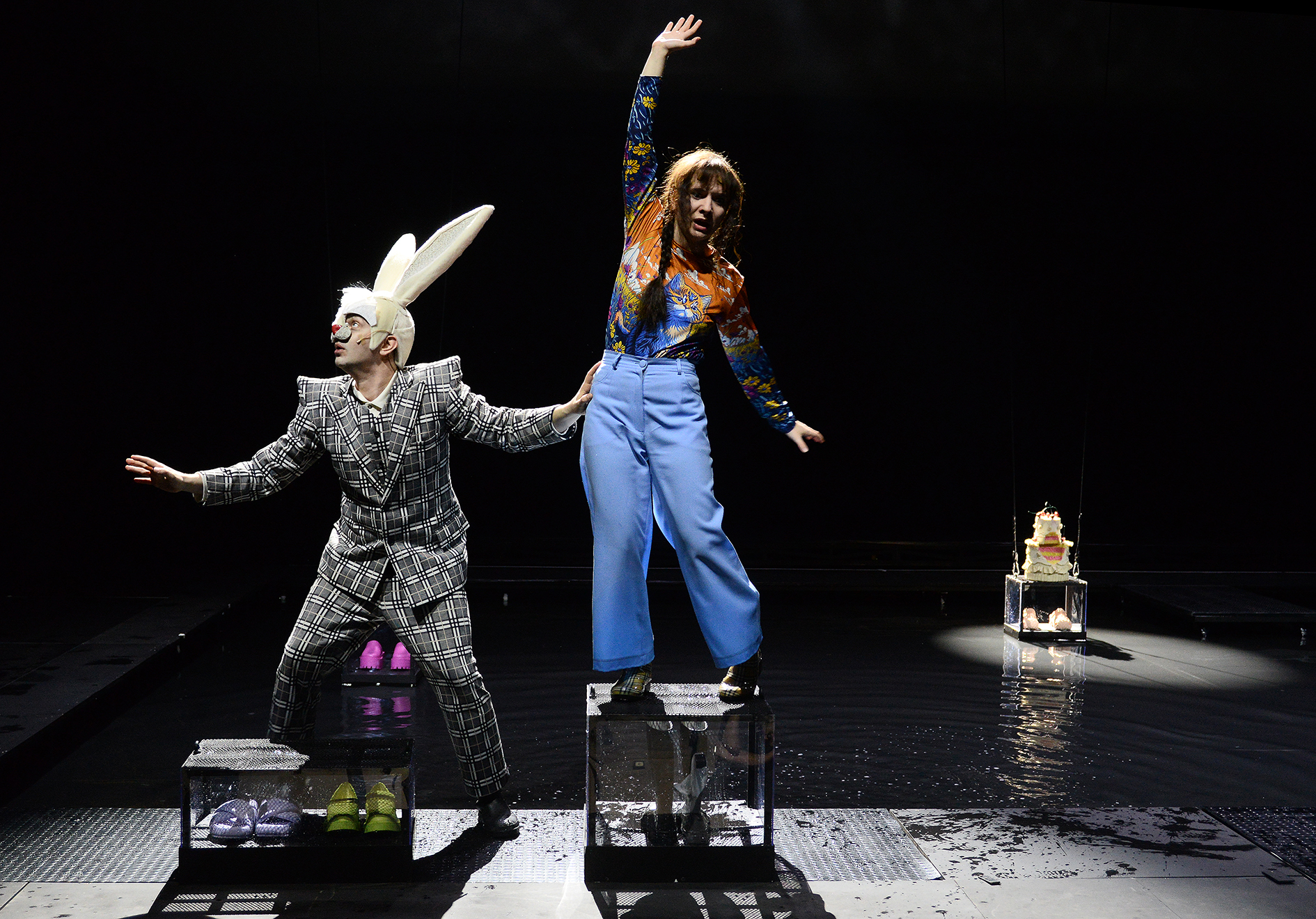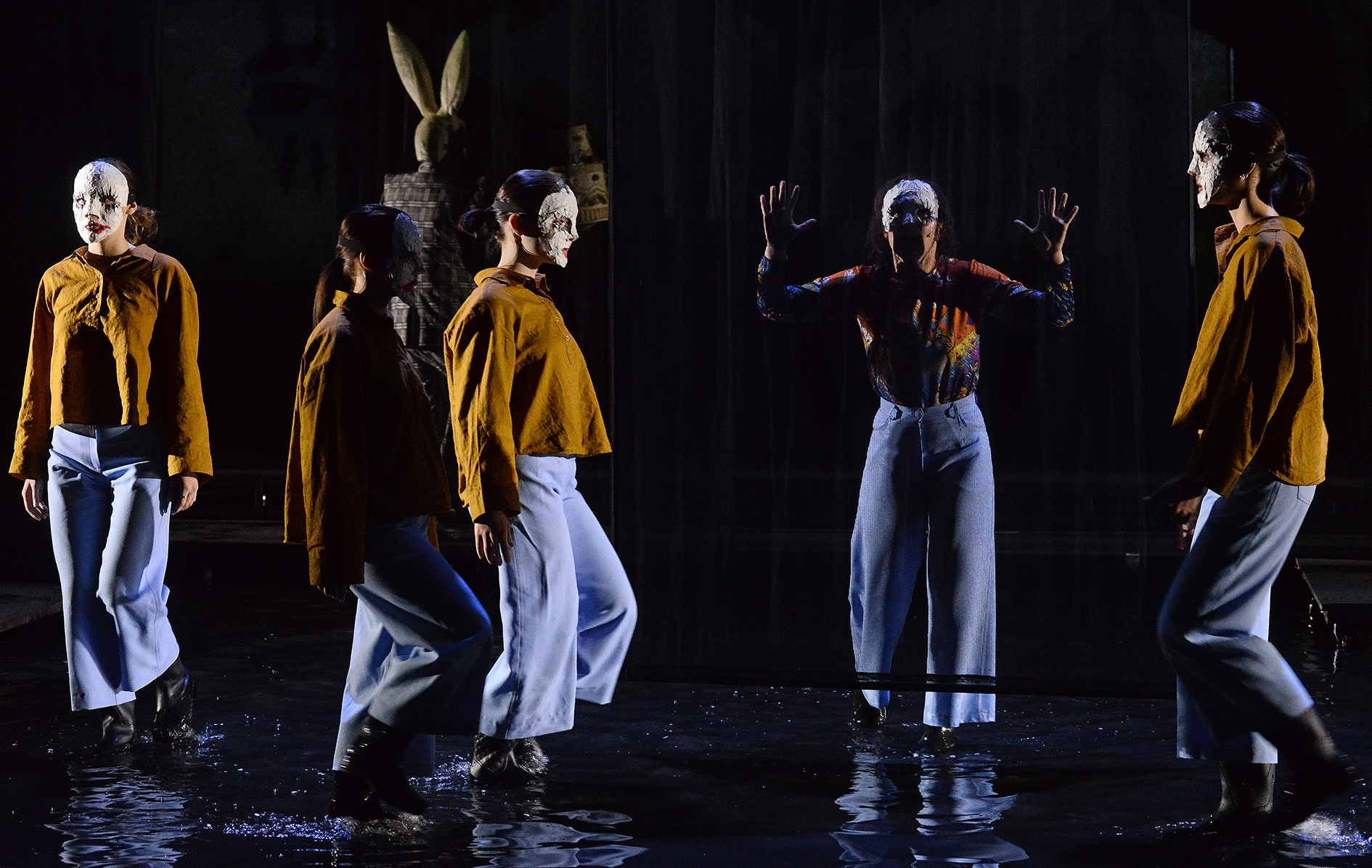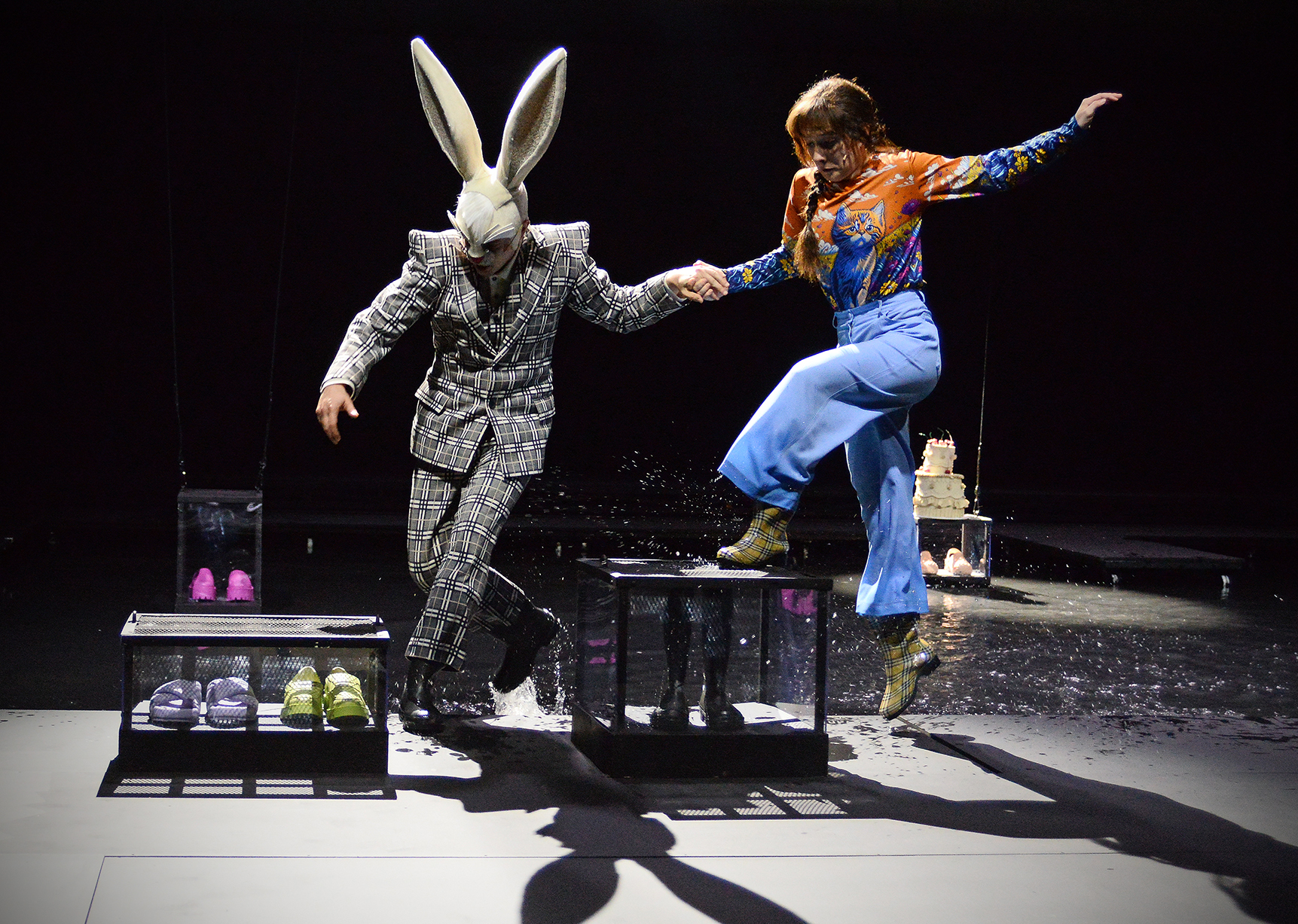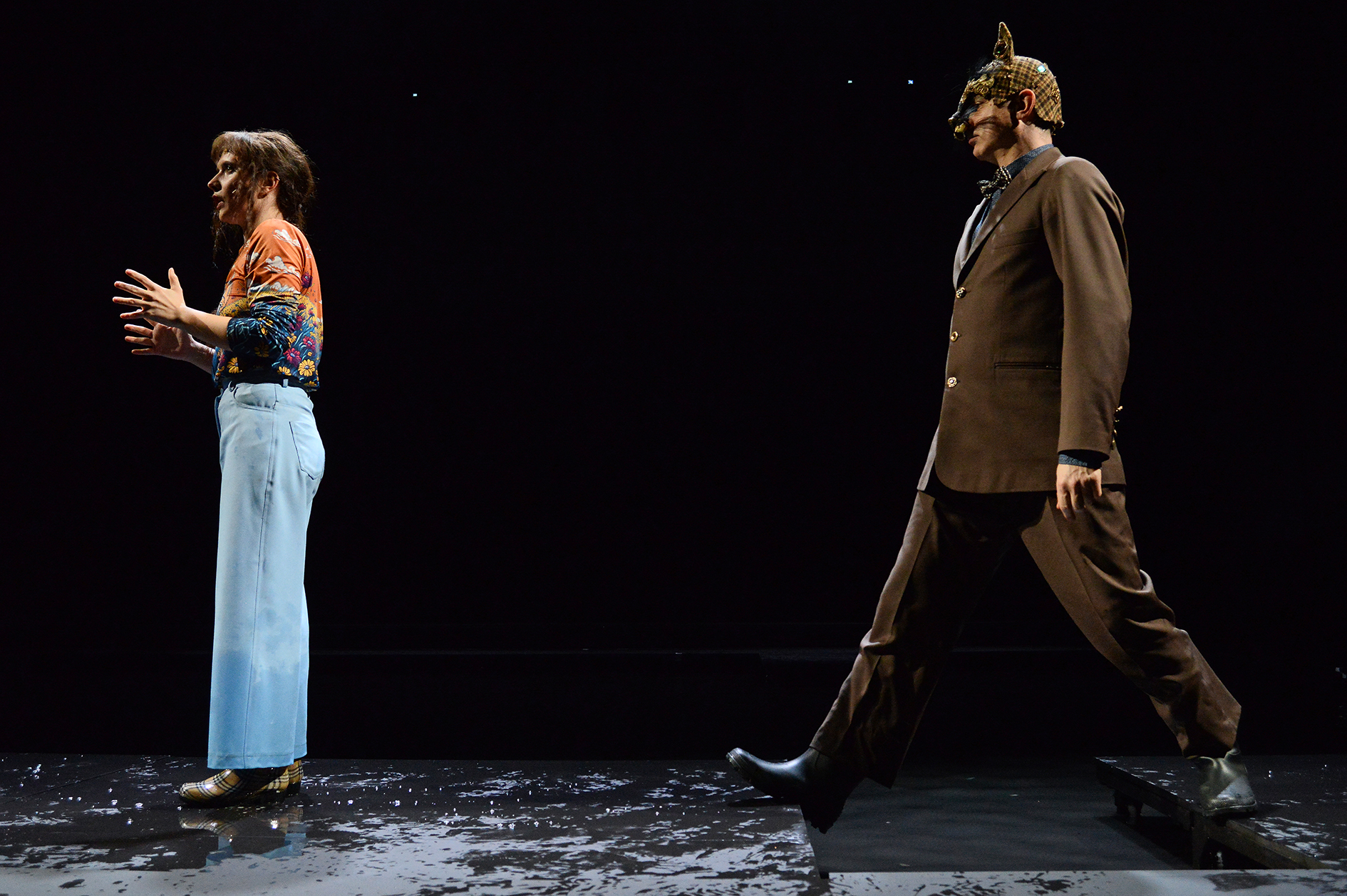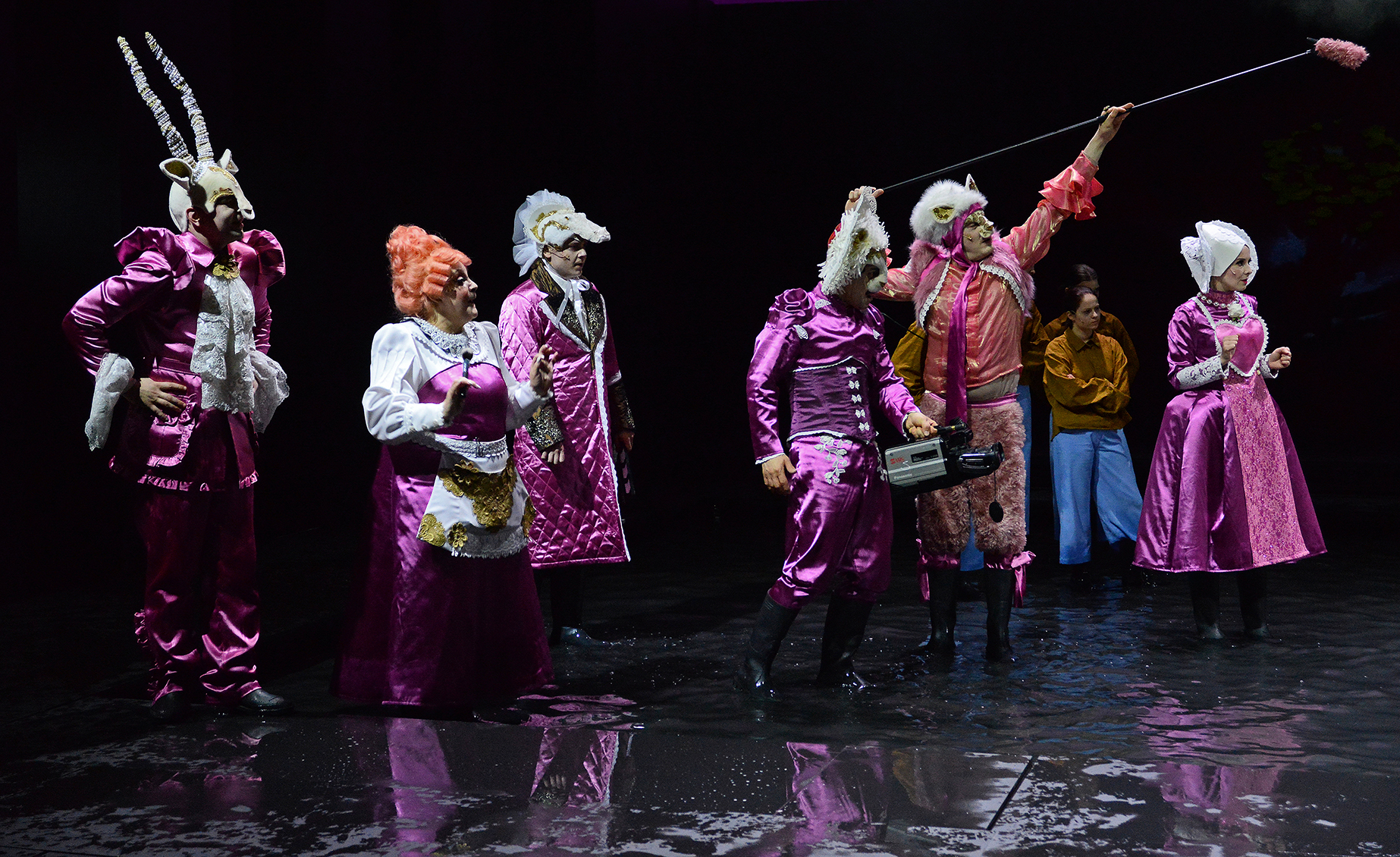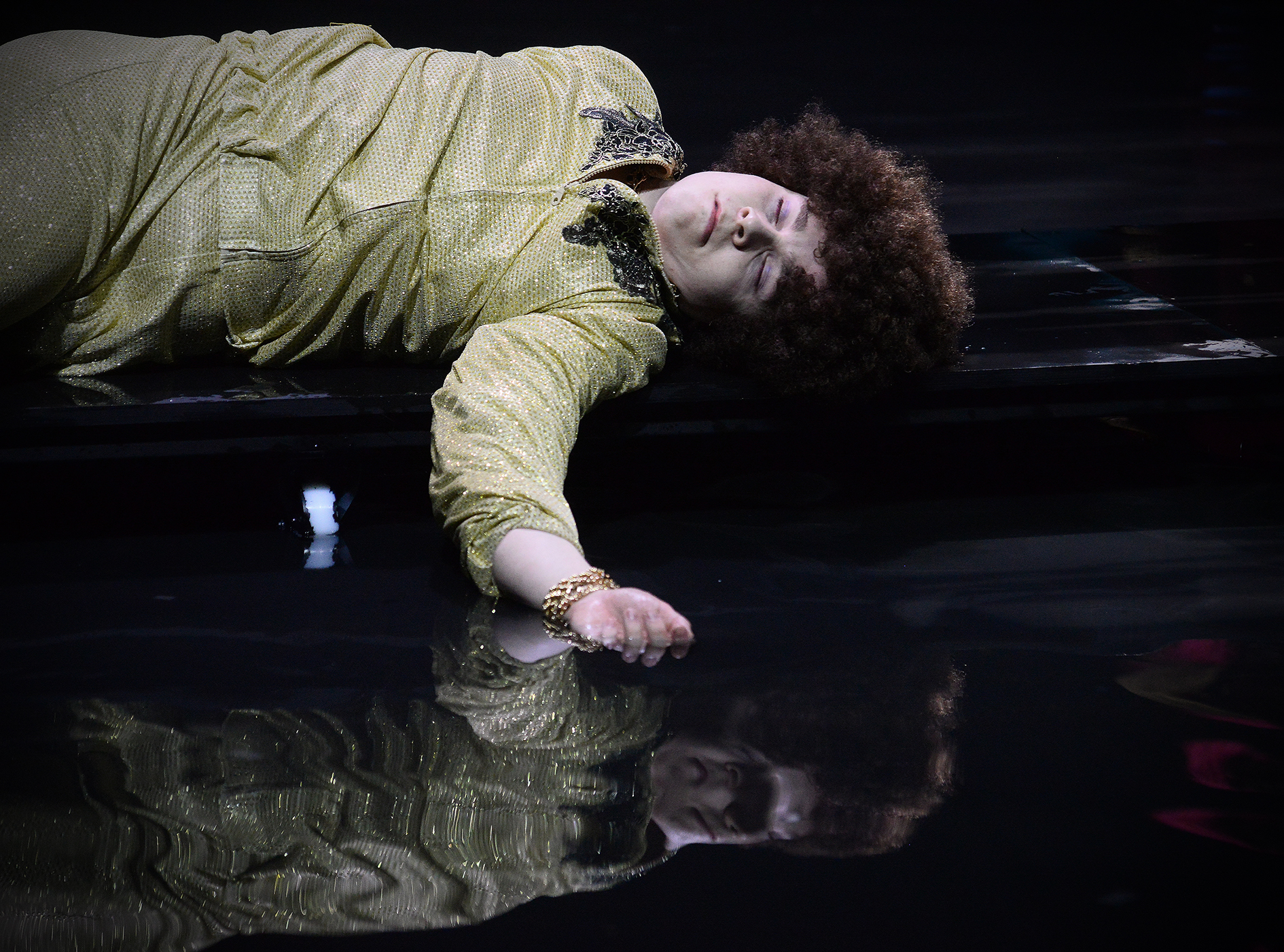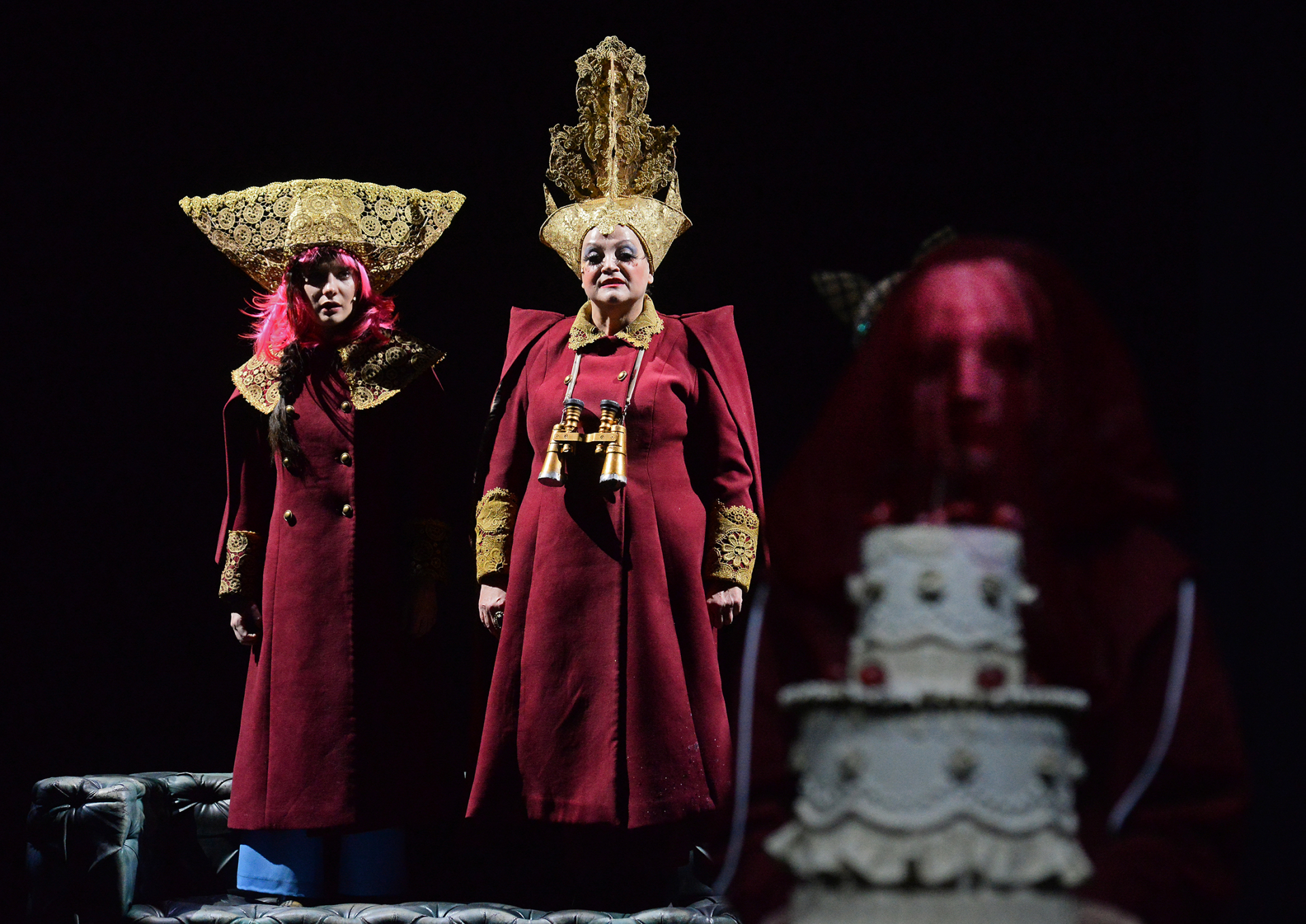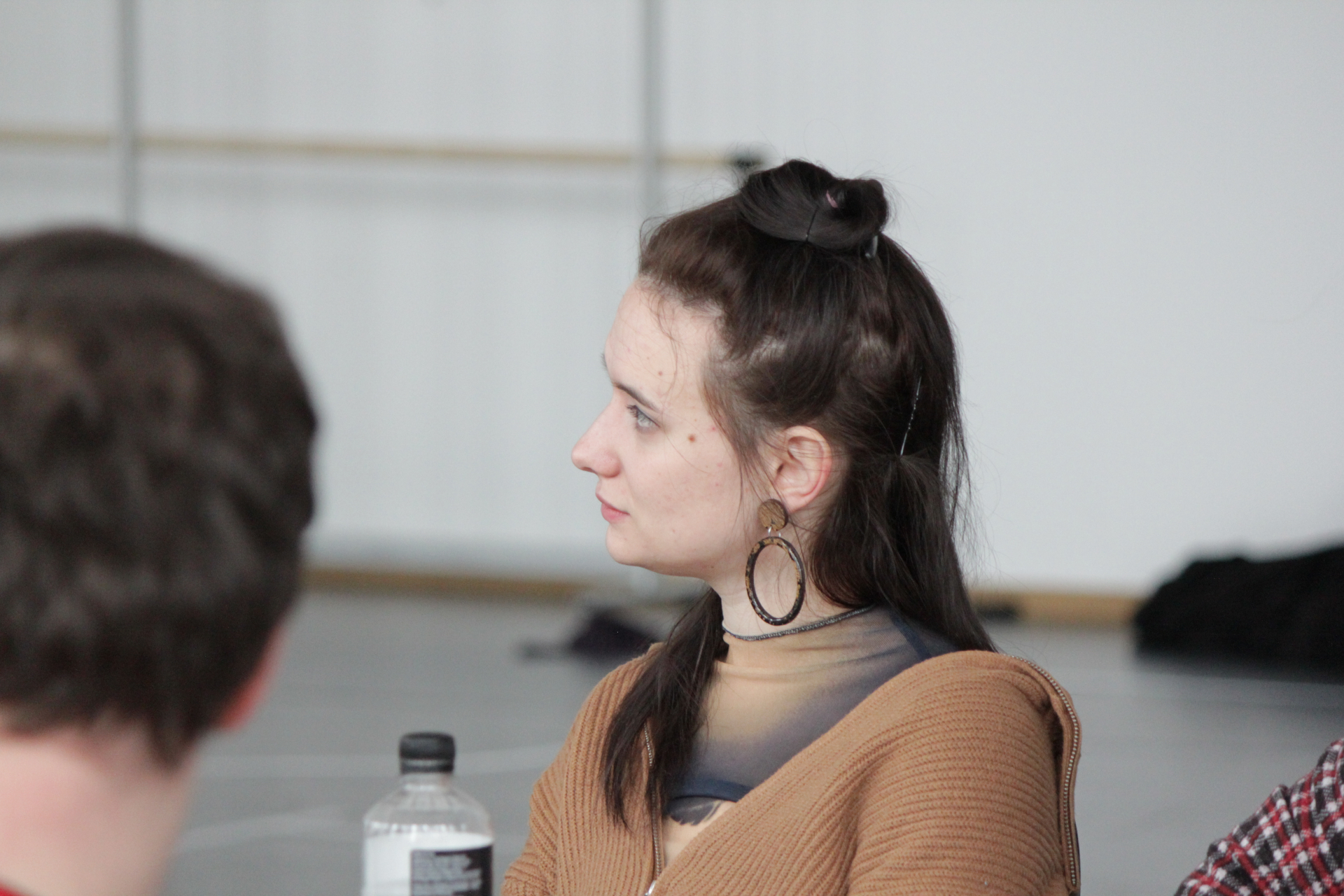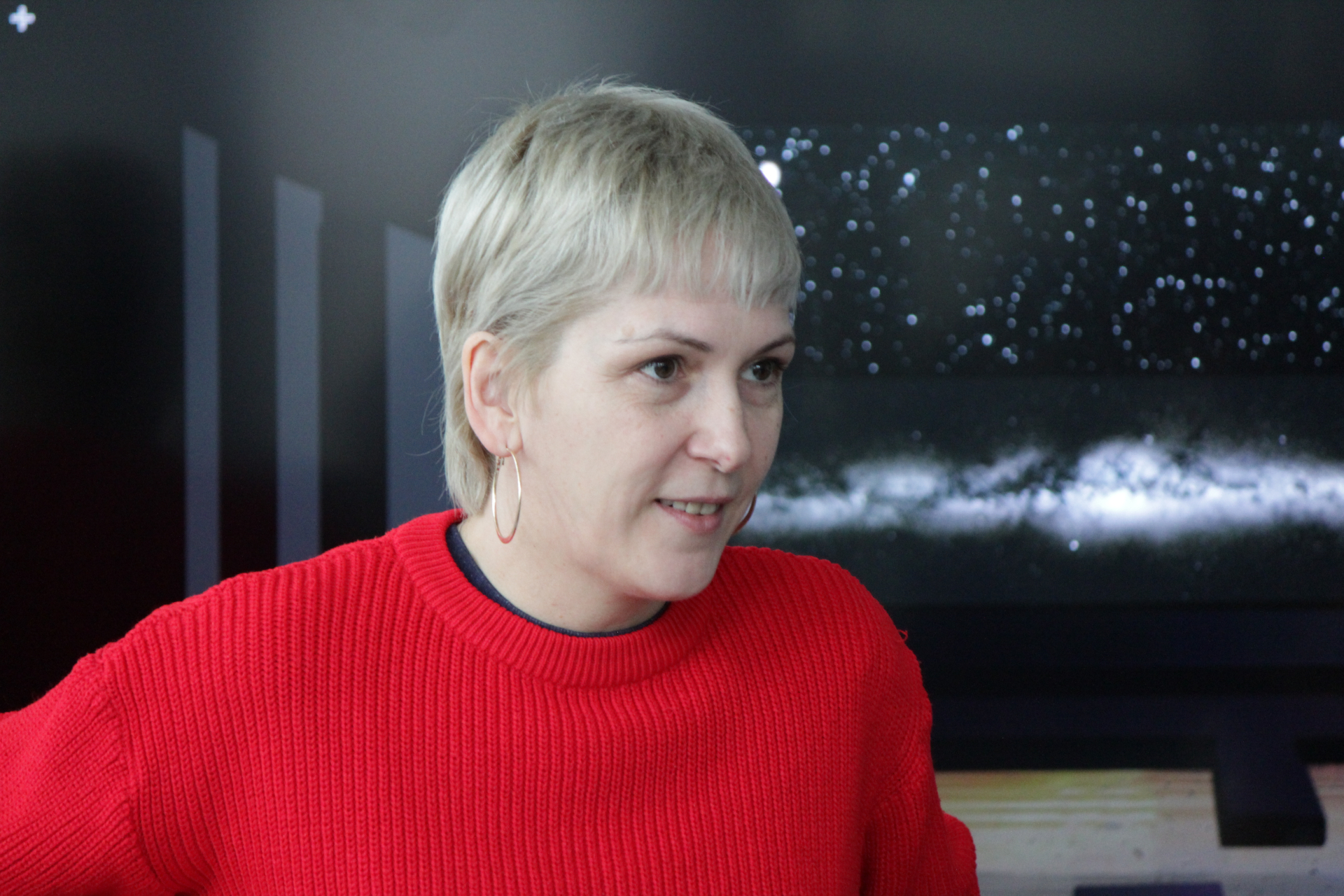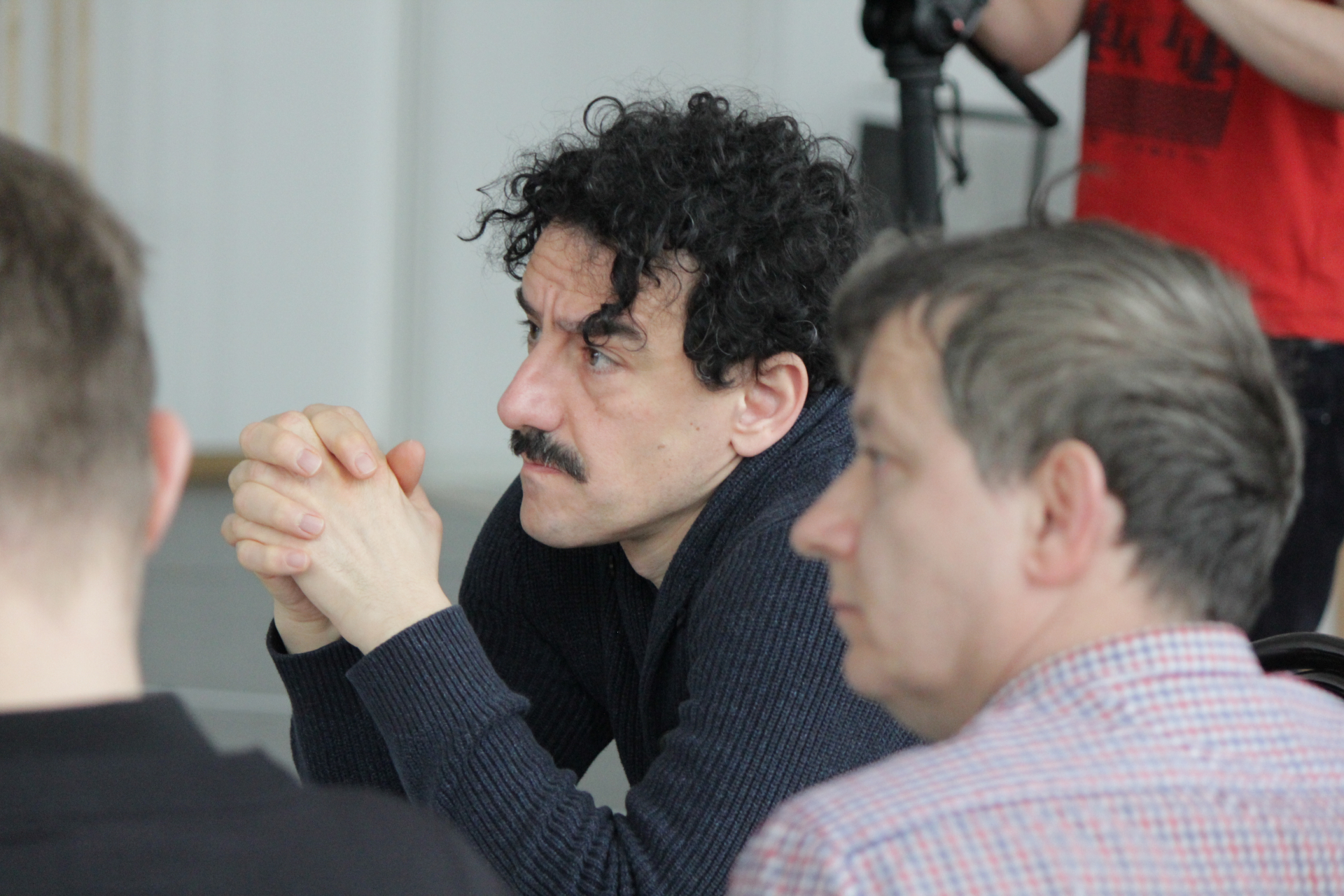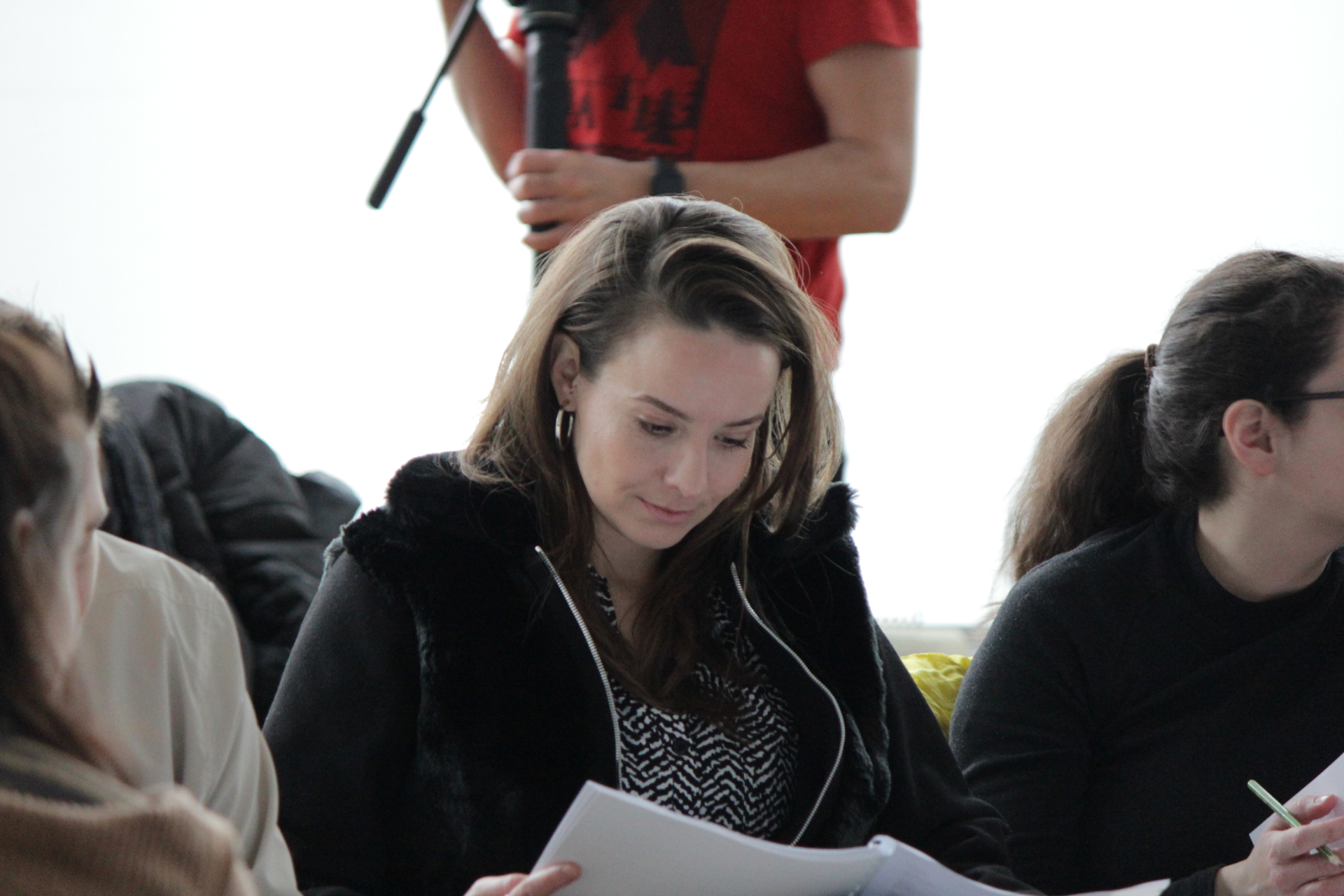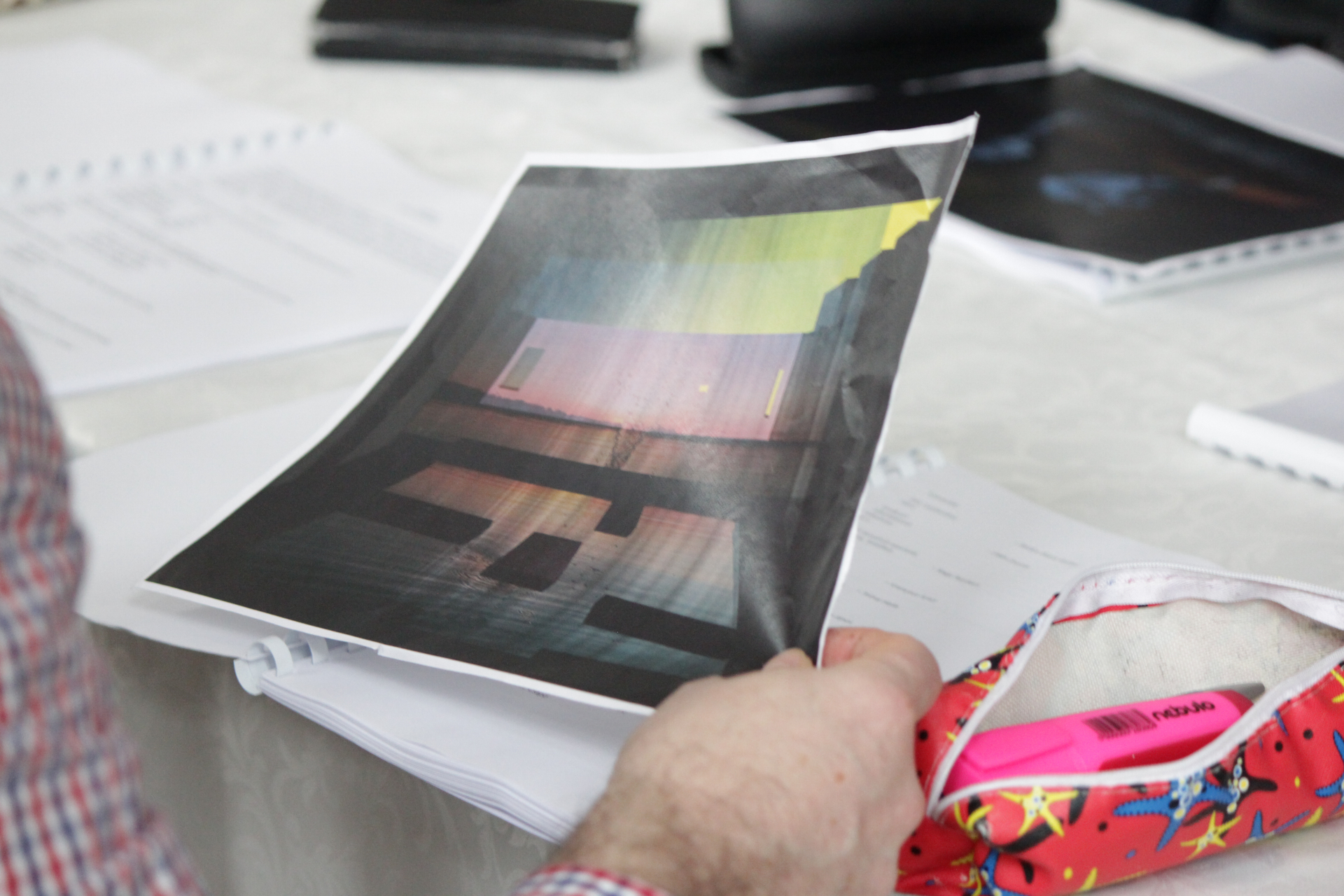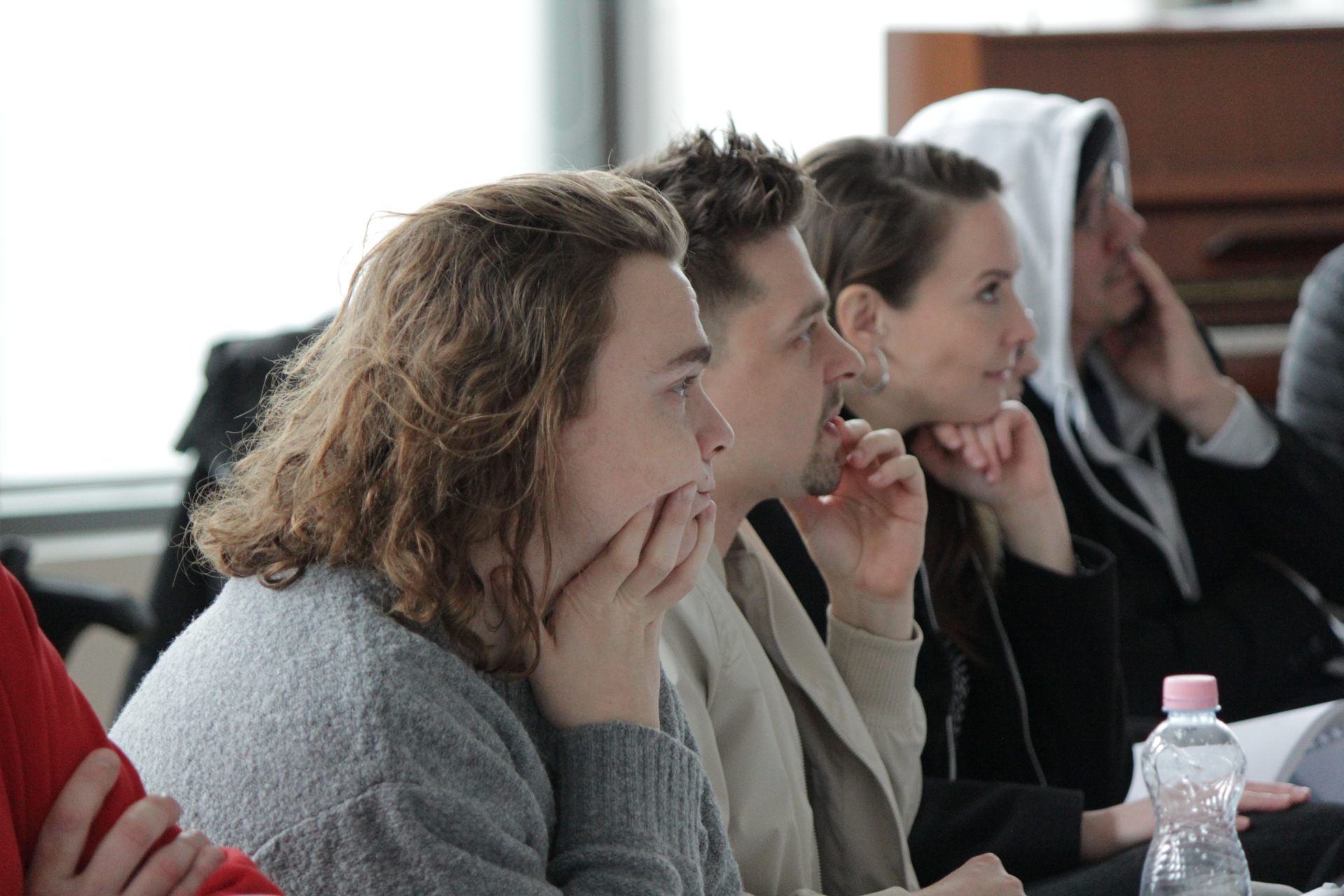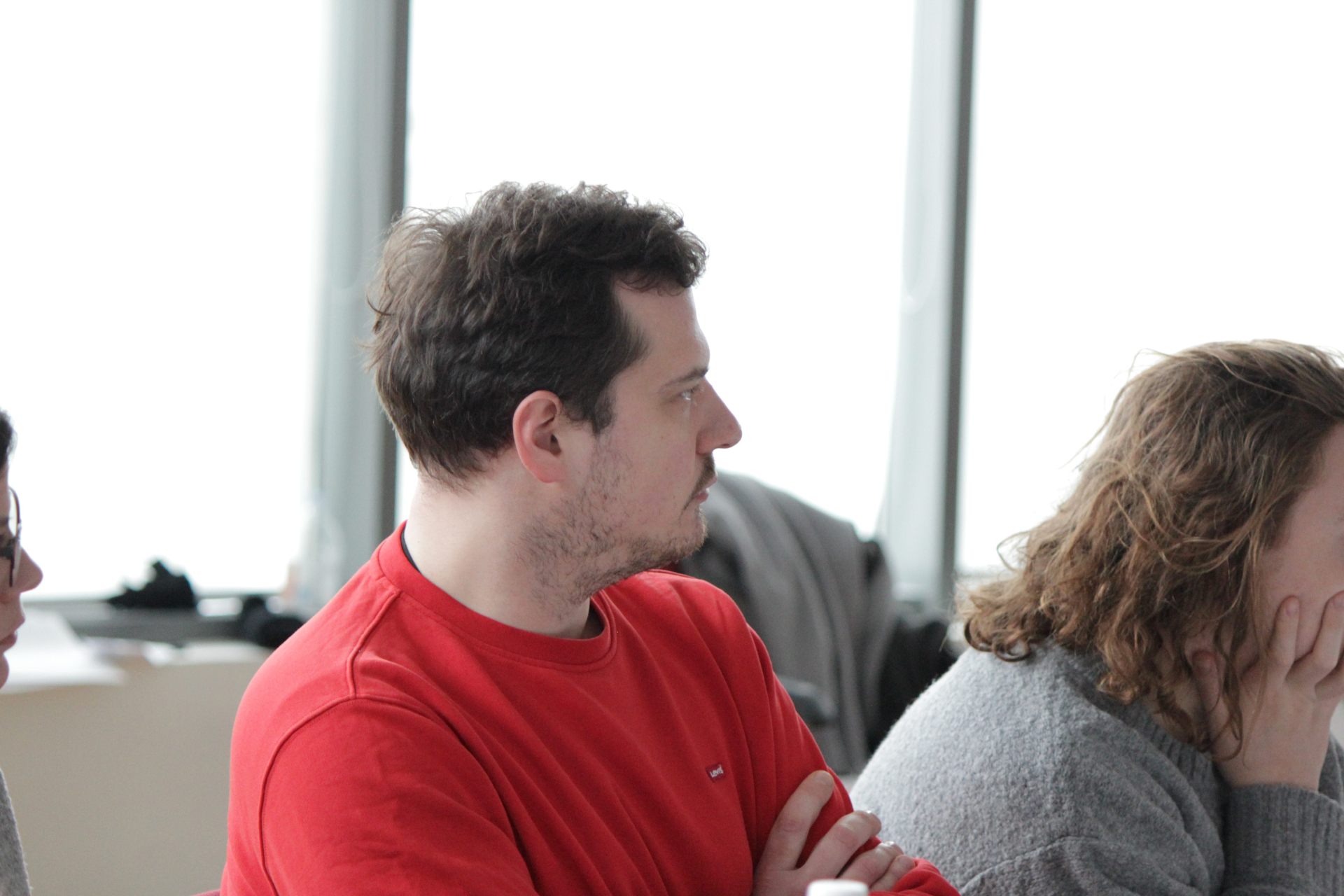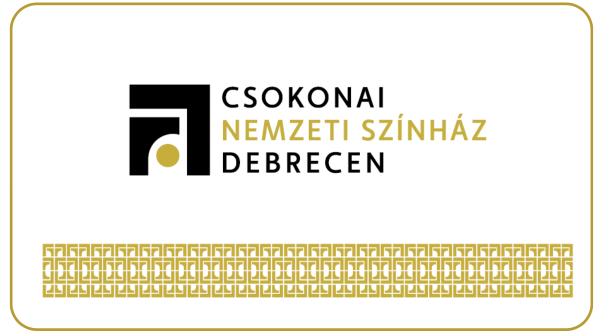Premiere: 7 March 2024
Since its publication in 1865, Lewis Carroll’s Alice’s Adventures in Wonderland has been an incredibly popular children’s book worldwide. Due to its countless associations, it has been adapted numerous times for both film and stage productions. The myriad wonders that surround the protagonist in this story—as Alice discovers a dream world—lend themselves to deep psychological analysis and can be interpreted as the process of a young girl growing into adolescence. When viewed from this perspective, Alice’s encounter with the White Rabbit is highly symbolic in nature: it’s as if the animal represents the biological and psychological maturation taking place within Alice, a journey every child must undertake by following the rabbit.
However, in Csilla Bereczki’s direction, the focus is not – at least primarily – on physical changes, such as the enlarging and shrinking process that takes place after consuming strange substances, but rather on the transformation occurring within a teenage girl’s psyche. Alice is at an age when she is no longer afraid to seek out experiences and is curious about the wider world. Yet she does not fully understand the events happening around her, so the boarding school she finds herself in within this adaptation serves as a reflection of Wonderland’s oddities. As she is not yet fully aware of herself, the behavior of those around her mirrors the uncertainty typical of her age. The production, in Júlia Sándor and Csaba Mikó’s adaptation, highlights the pitfalls of adolescence—the moments that either boost her self-confidence or completely undermine her self-esteem—by exploiting the magical, hallucinatory nature of Carroll’s world.
Director: Csilla Bereczki
